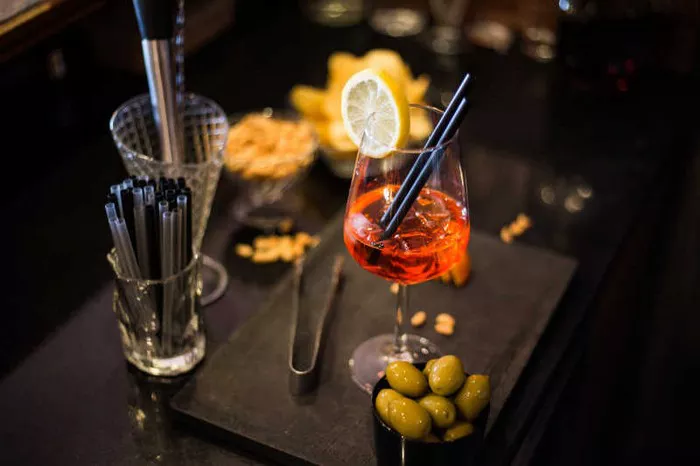Cocktails are a diverse and exciting category of beverages, enjoyed worldwide for their flavor and creativity. They can range from classic recipes to innovative modern creations. To appreciate cocktails fully, it’s helpful to understand the basic categories into which they fall. This article explores the four primary types of cocktails, their characteristics, and popular examples for each type.
Classic Cocktails
Definition
Classic cocktails are traditional drinks that have stood the test of time. They are typically well-known and have been enjoyed for decades or even centuries. These cocktails often form the foundation of mixology and are essential to any bartender’s repertoire.
Key Characteristics
Classic cocktails are characterized by their simplicity and balance. They usually feature a few key ingredients and are prepared using traditional techniques. The recipes for these drinks have been passed down through generations.
Popular Examples
Martini: A classic martini is made with gin and dry vermouth, garnished with an olive or a lemon twist. It’s known for its clean, crisp flavor and elegant presentation.
Mojito: Originating from Cuba, the mojito combines rum, fresh lime juice, mint leaves, sugar, and soda water. It’s refreshing and ideal for warm weather.
Old Fashioned: This cocktail consists of whiskey, sugar, bitters, and a twist of citrus. It’s known for its rich, robust flavor and simple preparation.
Manhattan: Made with whiskey, sweet vermouth, and bitters, the Manhattan is a sophisticated cocktail with a strong, balanced flavor profile.
Preparation Techniques
Classic cocktails are often stirred or shaken and served in specific types of glassware. The preparation is straightforward, focusing on the balance of ingredients rather than complex garnishes or mix-ins.
Contemporary Cocktails
Definition
Contemporary cocktails, also known as modern cocktails, have emerged in recent decades. These drinks often feature innovative combinations of ingredients and modern techniques. They reflect current trends and tastes in the cocktail world.
Key Characteristics
Contemporary cocktails are known for their creativity and experimentation. Bartenders often use unique ingredients, advanced techniques, and artistic presentation. They may include infusions, homemade syrups, and exotic garnishes.
Popular Examples
Espresso Martini: Combining vodka, espresso, coffee liqueur, and sugar syrup, the espresso martini is a modern classic known for its rich coffee flavor and energizing qualities.
Aperol Spritz: This Italian cocktail blends Aperol, prosecco, and soda water, garnished with an orange slice. It’s light, bubbly, and ideal for social gatherings.
Moscow Mule: Served in a distinctive copper mug, the Moscow mule features vodka, ginger beer, and lime juice. It’s known for its spicy ginger flavor and refreshing qualities.
Negroni: Made with equal parts gin, Campari, and sweet vermouth, the Negroni is a bold and bittersweet cocktail with a strong character.
Preparation Techniques
Contemporary cocktails may involve techniques such as muddling, shaking, and layering. Presentation is often creative, with attention to detail in garnishes and glassware.
See Also: The Classic Manhattan Cocktail: Ingredients, History, and Variations
Tiki Cocktails
Definition
Tiki cocktails are a genre of cocktails inspired by Polynesian and tropical themes. They gained popularity in the mid-20th century and are known for their exotic flavors and elaborate presentation.
Key Characteristics
Tiki cocktails often feature rum as the primary spirit and include a mix of fruit juices, syrups, and spices. They are typically served in decorative mugs or glasses with elaborate garnishes, such as fruit slices and umbrellas.
Popular Examples
Mai Tai: A classic Tiki drink made with light and dark rum, lime juice, orange curaçao, and orgeat syrup. It’s known for its complex, fruity flavor and vibrant appearance.
Zombie: This potent cocktail combines several types of rum with fruit juices and various syrups. It’s known for its strong alcohol content and tropical flavors.
Scorpion: Made with rum, brandy, orange juice, lemon juice, and orgeat syrup, the Scorpion is a balanced and flavorful Tiki cocktail.
Blue Hawaiian: Featuring rum, blue curaçao, pineapple juice, and cream of coconut, the Blue Hawaiian is known for its striking blue color and tropical flavor.
Preparation Techniques
Tiki cocktails often require multiple steps, including shaking, blending, and layering. The presentation is elaborate, with attention to colorful garnishes and themed glassware.
Low-Alcohol Cocktails
Definition
Low-alcohol cocktails are designed to be lighter in alcohol content compared to traditional cocktails. They cater to those who prefer a milder drink or want to enjoy a cocktail with less alcohol.
Key Characteristics
Low-alcohol cocktails focus on flavor and balance without the high alcohol content. They may use lower-alcohol spirits, mix in non-alcoholic components, or simply be diluted with more mixers.
Popular Examples
Spritz: A category of cocktails that includes the Aperol Spritz and other similar drinks, which feature a light, refreshing flavor with lower alcohol content.
Shandy: A blend of beer and lemonade (or other citrus-based drinks), the shandy is refreshing and easy to drink, with a lower alcohol content due to the beer dilution.
Bellini: Made with Prosecco and peach purée, the Bellini is a light and fruity cocktail with a lower alcohol content compared to many other mixed drinks.
Mimosa: A combination of champagne and orange juice, the mimosa is a popular brunch cocktail with a light, citrusy flavor and reduced alcohol content.
Preparation Techniques
Low-alcohol cocktails may involve simple mixing or shaking. They are often served in traditional glassware and may include a garnish for added visual appeal.
Conclusion: Exploring Cocktail Varieties
Understanding the four types of cocktails—classic, contemporary, tiki, and low-alcohol—provides a solid foundation for appreciating the rich diversity of mixed drinks. Each category has its own unique characteristics and popular examples, offering something for every taste and occasion. Whether you’re a seasoned mixologist or a casual cocktail enthusiast, exploring these types will enhance your cocktail experience and expand your appreciation for this versatile beverage category.


